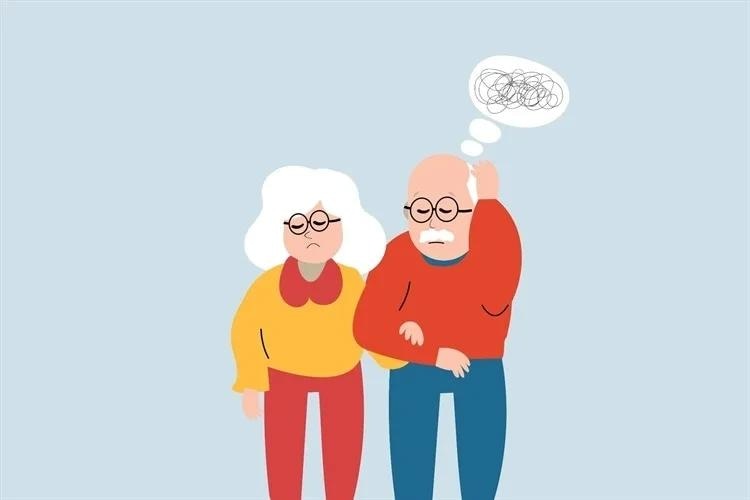Pretty sobering statistics; have hearing loss, get a hearing aid.
Is there an association between hearing aid use and risk of dementia?
In a recent study published in The Lancet Public Health Journal, the researchers examined the correlation between the use of hearing aids and the risk of developing dementia.
Study: Association between hearing aid use and all-cause and cause-specific dementia: an analysis of the UK Biobank cohort. Image Credit: SalimHanzaz/Shutterstock.com
Background
Both hearing loss and dementia are common in older adults. Using hearing aids to treat hearing loss in middle-aged or older individuals could potentially lower the risk of dementia.
The impact of hearing aid use on reducing the risk of dementia in real-world situations is uncertain, despite studies indicating that it can enhance cognitive function and reduce cognitive decline.
About a study
In the present study, researchers investigated the link between hearing aid usage and the likelihood of developing cause-specific and all-cause dementia.
UK Biobank is a cohort study that enrolled more than 500,000 volunteers aged between 40 years and 69 years from 2006 to 2010. A questionnaire was used to gather data on hearing loss and hearing aid usage.
The participant's hearing status was determined through a self-reported question that asked, "Do you experience any hearing difficulties?" Users can respond with "no", "yes", or "I am completely deaf".
The hearing loss status was divided into two categories: those without hearing loss and those with hearing loss. The study gathered information on the usage of hearing aids through a self-reported question that asked participants if they used a hearing aid often, with the option to answer "yes" or "no".
Starting in 2009, UK Biobank participants were surveyed about their use of hearing aids. Deaf participants were categorized as part of the group including individuals with hearing loss who did not use hearing aids, without being questioned about their use of hearing aids.
Dementia diagnoses were determined through hospital inpatient records as well as death register data. The study measured incident all-cause dementia as the outcome variable, which included subtypes such as Alzheimer's disease, non-Alzheimer's disease, nonvascular dementia, and vascular dementia.
Results
Almost 437,704 individuals were included in the analyses. The study involved participants with a mean age of 56.0 years, consisting of 235,249 females and 202,455 males at baseline. The average length of follow-up was 12.1 years.
There were 325,882 participants without hearing loss and 111,822 with hearing loss. Approximately 13,092 individuals with hearing loss utilized hearing aids.
Hearing loss was more prevalent in men than women and increased with age. Individuals who suffer from obesity, loneliness, depressed mood, and cardiovascular disease are more likely to experience hearing loss and use hearing aids.
Individuals who had hearing loss but did not use hearing aids have a higher likelihood of developing all-cause dementia in comparison to those without hearing loss while people with hearing loss using hearing aids did not report increased risk.
The proportion of dementia risk among people with hearing loss who did not use hearing aids was almost 29%. Similar findings were observed for correlations with dementia subtypes. The study found that there were no significant differences between men and women in the results of stratified analyses.
However, the attributable risk proportions for different dementia types for hearing loss without using a hearing aid were higher among females than in males.
The study found that mediators played a role in the relationship between dementia and hearing aid usage. Specifically, 1.52% of the association was attributed to improved social isolation, 2.28% to improved loneliness, and 7.14% to improved depressed mood.
Significant interactions were observed for dementia, education, smoking, income level, cardiovascular disease, and APOE e4 allele status. Furthermore, dementia was found to be more prevalent in high-risk groups.
Individuals with hearing loss who did not use hearing aids had the highest risk across most interaction variables, while those who used hearing aids had lower to no risk increases compared to individuals having no hearing loss.
Two APOE e4 alleles were linked to higher dementia risk and did not show significant risk variations across hearing loss and hearing aid usage.
Conclusion
The study findings showed that individuals with hearing loss have a 42% higher risk of developing dementia compared to those with normal hearing. Up to 8% of dementia cases could be prevented with hearing loss management, highlighting the important need to address this issue.
Using hearing aids was linked to a similar risk of dementia as individuals without hearing loss. Further highlighting a need to better our hearing loss management.
Associations were found in cause-specific and all-cause dementia subtypes. Clinical trials are necessary to evaluate the impact of hearing aid usage on dementia risk.
The role of various types of hearing aids and the duration of their use in preventing dementia in hearing impairment also needs to be determined.
-
Jiang, F., Mishra, S.R., Shrestha, N., Ozaki, A., Virani, S.S., Bright, T., Kuper, H., Zhou, C. and Zhu, D., 2023. Association between hearing aid use and all-cause and cause-specific dementia: an analysis of the UK Biobank cohort. The Lancet Public Health. doi: 10.1016/S2468-2667(23)00048-8 https://www.thelancet.com/journals/lanpub/article/PIIS2468-2667(23)00048-8/fulltext
Posted in: Medical Science News | Medical Research News | Healthcare News


No comments:
Post a Comment